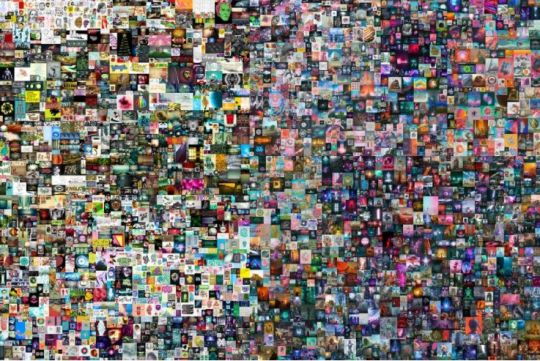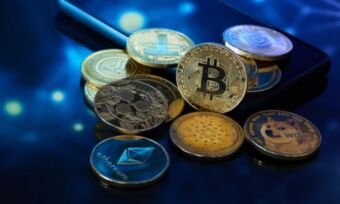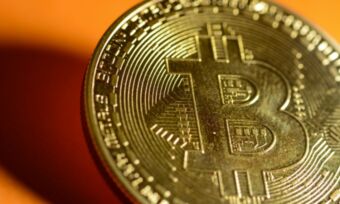4 Best NFT Marketplaces of 2022

Non-fungible tokens, known more commonly as NFTs, are digital assets stored on the blockchain. These digital assets have exploded in popularity over the past year, with many NFT collections now commanding prices in the millions of dollars. Unlike other crypto assets, such as Bitcoin, which are fungible in the sense that one Bitcoin can be exchanged for another, NFTs are unique ‘one-of-a-kind’ assets. NFTs can take many forms, such as images, music or in-game items to be utilised in the metaverse.
With the huge interest in NFTs across many different blockchains, there has been a massive increase in the number of NFT marketplaces available to trade these tokens. Each marketplace fills its own niche and has unique benefits and potential drawbacks. This causes the question to arise as to which marketplace is the best?
When deciding which NFT marketplace is best for you, there are a couple of things you need to consider. One of the most important steps is to decide which NFT(s) you would like to trade. There are NFTs across almost all blockchains including Ethereum, Binance Smart Chain, Solana, Avalanche and others. Many NFT marketplaces cater to NFTs on certain blockchains. As Ethereum was the birthplace of NFTs, most collections are on the Ethereum blockchain, although, there are increasingly more NFT collections popping up on other chains.
Another big decision that must be made is whether to use a centralised or decentralised marketplace platform. Due to the decentralised nature of crypto, there is a strong shift away from intermediaries to facilitate transactions. Decentralised platforms allow for peer-to-peer NFT trading whereas centralised options facilitate trades between buyers and sellers. A final consideration is what you would like to achieve when using an NFT marketplace. For most individuals, an NFT marketplace is the gateway to buying and selling NFTs that they like or that they want to speculate on financially. However, creators and artists may have different requirements and may seek out marketplaces that cater best for what they would like to achieve with their NFT collections.
With so many NFT marketplaces out there, it can make sense to use more than one, as each caters for a specific niche in the NFT market. One marketplace can give you access to digital image NFTs or NFTs specific to a game, whilst another may give access to NFTs created for music. It is easy to see why the NFT space can be quite confusing and overwhelming. By answering some of the most important questions about NFTs and NFT marketplaces, this guide aims to get you started in the right direction.
What is the most popular NFT marketplace?
OpenSea is currently the leading marketplace, with the highest volume of NFT sales and users. OpenSea offers a wide variety of NFTs for prospective buyers to choose from and allows NFT owners to list their NFTs for sale at a set price or put it up for auction. The platform also has a feature that allows users to create NFTs through a process known as ‘minting’. This involves authenticating the data and creating a verifiable asset on the blockchain. The feature is especially valuable for content creators who wish to digitalise their work and sell it. Currently, OpenSea works for Ethereum, Polygon and Klatyn blockchains, with the beta support for Solana currently being tested.
OpenSea is a centralised NFT marketplace that takes a 2.5% fee on every transaction that takes place on the platform. For ease of use, OpenSea is one of the top marketplaces. The platform allows you to connect your web 3 wallets, such as Metamask, directly to the site where you can place bids, trade and even mint NFTs directly from your wallet. OpenSea verifies legitimate NFT collections by putting a blue tick next to the name to help investors avoid scam projects.
Is OpenSea the best NFT marketplace?
The question of whether any NFT marketplace is ‘the best’ is subjective and varies from investor to investor. Everyone has different requirements and priorities in relation to the platform they choose. If you value decentralisation and want to avoid centralised platforms at all costs, then OpenSea is likely not for you. However, for investors who enjoy a clean, easy to use interface and only want to trade on the limited chains that OpenSea supports, then it could be a great option. It is apparent that, for many, this is the priority, as shown by OpenSea’s consistent first place ranking for NFT sales volume.
OpenSea currently has more than one million users, more than any other NFT marketplace, meaning sellers are more likely to list here than anywhere else due to higher traffic and greater chances of selling their artwork for the best price. This high level of activity makes the marketplace desirable for buyers and sellers alike and increases investor confidence that the platform is trusted by so many. Despite the large number of users trusting the platform, OpenSea has experienced several security breaches that have led to stolen NFTs and cost some investors substantial losses. As with any digital marketplace, there will always be code-based risk and it is important to take the necessary precautions to keep your investments safe.
Where is the best place to buy NFTs?
Investors truly are spoilt for choice when it comes to NFT marketplaces. Besides OpenSea, here are some other top options:
1. Rarible
Rarible is a popular NFT marketplace that has a wide variety of NFTs for sale across the Ethereum, Tezos and Flow blockchains. This marketplace is like OpenSea in terms of layout and features, however there are some major differences. Rarible is decentralised and holding the native token $RARI gives voting rights on the protocol and how it is managed. Rarible rewards users of the platform in $RARI tokens every week. If you have bought, sold or created an NFT on the Rarible platform, you will get a share of these rewards proportional to the value of your transactions. Creators can set custom royalties on their collections on Rarible, so they receive a share of every trade. The platform does charge a higher fee than OpenSea, at 2.5% for both the buyer and seller. For investors and creators who value decentralisation and want access to NFTs on some chains that OpenSea does not support, Rarible is a great option.
2. tofuNFT
tofuNFT is another decentralised NFT marketplace that is becoming increasingly popular. One of the main drawcards of this marketplace is the fact that it supports NFTs across 26 chains, meaning it is a one-stop-shop for investors looking to trade NFTs across many different blockchains. The platform is designed to be easy to use and efficient, allowing users to search for their desired NFT using advanced filters. The platform is also suitable for creators wanting to sell their work, allowing them to set custom royalties on their collections and become verified on the platform to increase their credibility once they have met certain criteria. tofuNFT has recently released a new feature that integrates with ‘layer zero’, allowing NFTs to be compatible on multiple chains, allowing for cross-chain trading and interoperability.
3. NBA Topshot Marketplace
This marketplace was created via collaboration between the National Basketball Association (NBA), its player union (NBPA) and blockchain-focused Dapper Labs in order to create sports collectibles available as NFTs. NBA fans and sports enthusiasts can now collect and trade NBA moments and collectibles, such as player cards, stored on the blockchain. Over 800,000 users have been registered on the platform and the marketplace has handled over US$500 million in NFT sales. This marketplace serves a niche market as it is based entirely around NBA sports collectibles, so if you are an NBA fan, this could potentially be the marketplace for you! These NFTs trade on the Flow blockchain, so to access this marketplace, you must have a wallet that supports Flow.
Other notable mentions include Axie Marketplace, which is great for metaverse items, Crypto.com for zero fees on transactions and NFT listings, and Nifty Gateway for exclusive NFT drops.
What is the best NFT app?
Many of the top NFT marketplaces have apps available for IOS and Android devices. OpenSea has one of the most used and highly rated NFT mobile apps available, rated 4.7 out of 5 stars on the Appstore with almost 2000 reviews. Reviews about the app mentioned ease of use and the fact that users can view both their own NFTs as well as other collections as top features. However, the mobile app does have several limitations when compared to the web version, including the inability to trade NFTs directly from app.
Rarible also has a mobile app available to IOS and Android users but sits below OpenSea in the number of downloads and ratings. The Rarible mobile app again has limitations when compared to the web version, with no ability to trade NFTs. The main purpose of the app is to allow users to view NFTs, follow the latest trending collections, explore different collections and share items with friends.
Sketchar is an NFT app that allows you to draw, create, sell and buy NFTs from your mobile device. Unlike the majority of other NFT apps for mobile devices, this app has almost all the features that any NFT investor, trader or creator is after. This app does require a paid subscription and potentially has less traffic than other web based NFT marketplaces. However, for individuals wanting a one-stop-shop NFT app for mobile, Sketchar looks like it could tick the boxes.
The Risks of NFT Investing
Investing in NFTs is risky. Cryptocurrencies and especially NFTs are extremely new assets, and it is important to take extra precautions to keep your digital assets safe. Never connect with any unknown sites, do not respond to messages received on social media about cryptocurrencies or NFTs and never give your wallet seed-phrase to anybody, no matter who they claim to be. Digital assets will always be subject to code based risk, but you can reduce this risk by only interacting with well-known, audited platforms and always maintaining ownership of your assets by using a hardware wallet.
The NFT space is plagued by scams and fake projects. Be sure to do your due diligence before investing in anything. A good way to get started in this space is to start by buying NFTs that you like from reputable marketplaces, rather than for the prospect of monetary gain. Many NFTs, especially NFT projects that have stood the test of time over a few years, have strong communities which can be valuable in a way beyond money. At least if the NFT goes down in value, you will be happy to own the asset. Remember, there are no guarantees in crypto or NFTs. The value of your assets could potentially go down substantially, and it is always important to remember this when allocating funds in your portfolio and overall investing strategy.
Cover image source: Jeakis/Shutterstock.com
This article was reviewed by our Content Producer Isabella Shoard and Content Producer Marissa Hayden before it was updated, as part of our fact-checking process.






